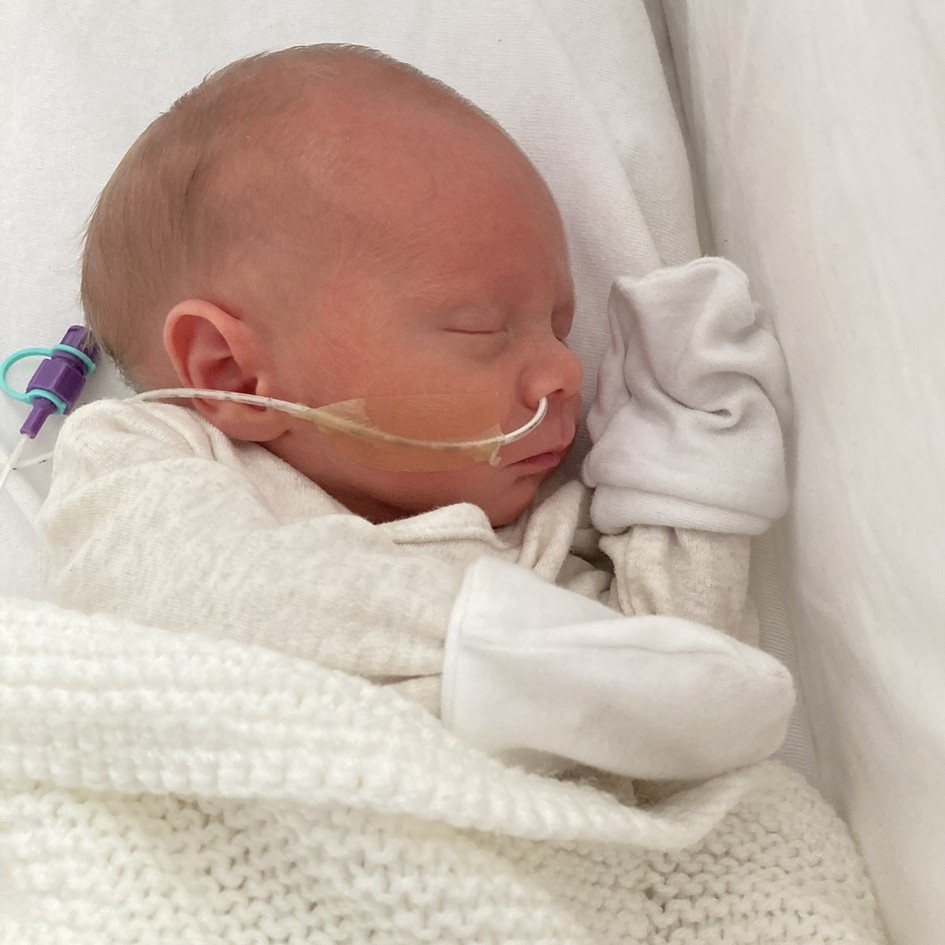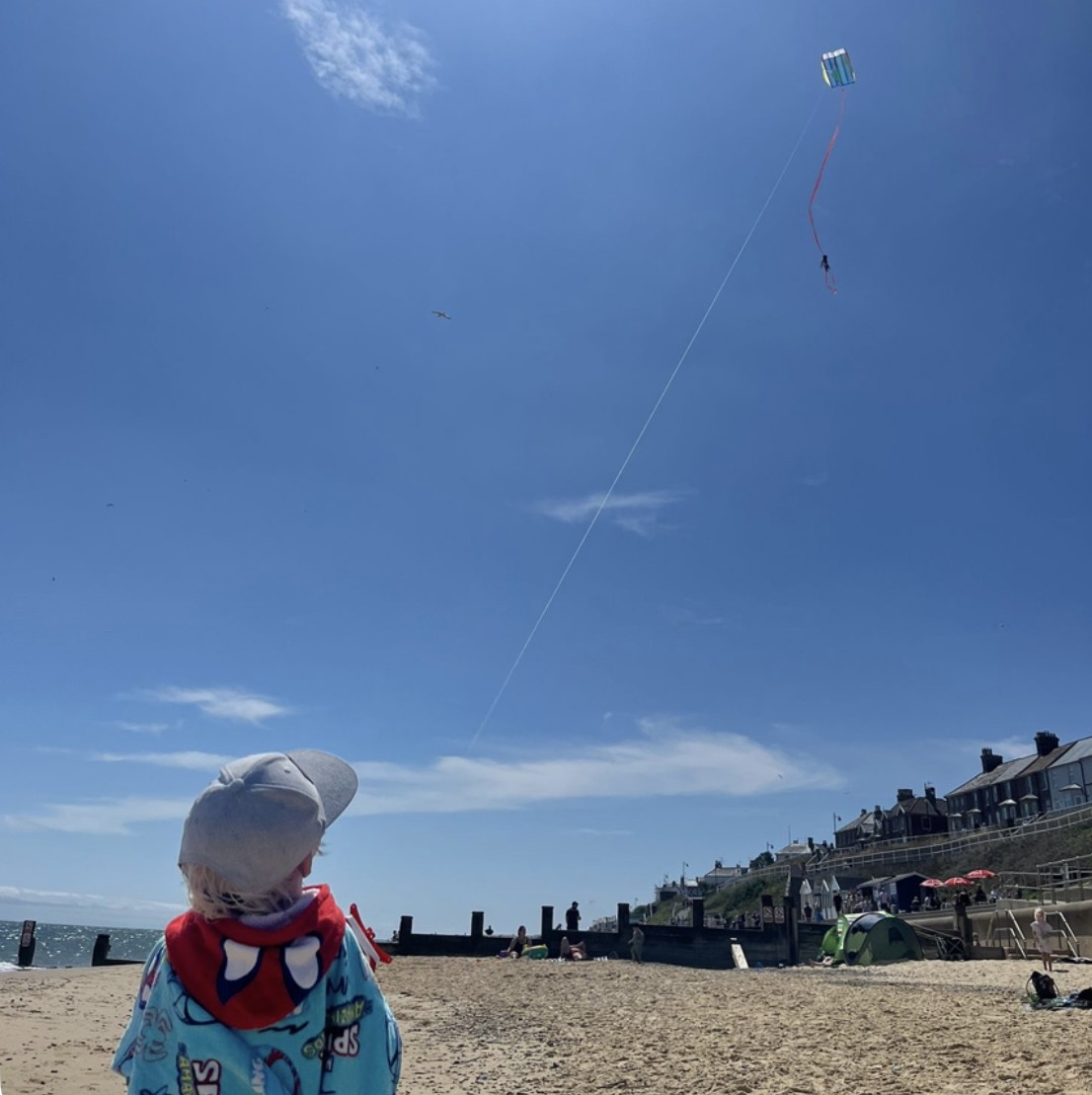
On PFIC Awareness Day, we are very grateful to Emily for sharing her story about the reality of living with this rare condition.
My son Sam* was born in June 2022. He was six weeks premature and had a meconium plug and pancreatic insufficiency after birth, but the investigations as to the causes were inconclusive and once he’d been treated in NICU for a week, we were sent home.
Four weeks after this, I noticed that Sam’s poo had turned white, so I took him to our local hospital where he was checked over and then sent home without any investigations being made.
In the weeks that followed, I made many trips to the doctor about this issue. It wasn’t just the colour of his poo that was odd – to me it seemed fatty and greasy. When I mentioned this, it was suggested that this was because I gave him eggs for breakfast!
Sam was our first child. I don’t believe many new mums are experts in baby poo so although I believed this wasn’t normal, it’s difficult to argue with medical professionals and I of course hoped it wasn’t anything serious.
He was also a very unsettled baby – he never slept for more than two hours and would wake up screaming. Of course, I told the doctors all this, but I was constantly reassured. I was a new mum and ‘all babies are different.’
When he was six months old, Sam began scratching. To this day, I don’t know if this was the age when he started to itch or it was only at this age that he was able to scratch. Either way, it’s horrible to think of such a young baby being in such extreme discomfort. By this time, I’d been doing my own research into pale poo and itching, and I took him to my GP again and said: ‘I think Sam may have a problem with his liver’ and requested blood testing.
But I was told it was eczema. We went back and forth on numerous occasions being given different creams, which only made the situation worse as we had to expose his skin to apply it, causing him more cuts from the severe scratching. My GP wouldn’t refer me or carry out tests, so I took him to A&E and they also dismissed me. By now, I was becoming very distressed. I knew deep down there was something wrong with Sam, it was horrible to see him suffering, but I couldn’t make myself heard. He had no quality of life with the itching, he couldn’t sleep, we were fighting off skin infections applying antiseptic creams and struggling to leave the house because of his severe bowel problems, managing all of the symptoms alone.
Sam’s next symptom was grey poo for two weeks. So, I went back to my GP surgery, but this time tried a different doctor. Luckily this doctor had worked in paediatrics so finally I was given an urgent referral to a paediatrician. At this appointment I explained to the paediatrician why I thought he had a liver problem, but they wanted to rule out allergies first.
So, by the time, it was accepted that the problem was likely to be Sam’s liver, and we were referred to Kings, he was a year old. They started genetic testing and after about three or four months, we were told that he had an extremely rare form of PFIC MYo5B deficiency.
Sam started treatment with fat soluble vitamins. By this time the itching had eased, and his other symptoms also started to improve. A few months after diagnosis, however, he got chicken pox which of course triggered a terrible bout of itching. He was prescribed odevixibat, which eased it. He’s now been on it for a year and I’m happy to say the itching is greatly improved.

Sam is now three years old, and we are able to manage his symptoms until he picks up a virus, something which would be an inconvenience for any other child but for us means a stay in hospital. Any illness he picks up means his itching suddenly becomes worse, but in this case, his team increase the odevixibat dose, and this deals with it.
Other than that, he is a happy little boy, hitting all his milestones and very good at talking! We have appointments at Kings every six months and with his local team every three months and his medical team are happy with his progress. He has regular blood tests for monitoring. I’m relieved that he won’t remember the early trauma he went through and also that there is a treatment for this incredibly distressing symptom of his condition – I just wish it hadn’t taken so long for us to get a diagnosis.
I hope our story helps others who find themselves in our situation. I found out about CLDF from researching support for parents, and the charity has helped with lots of support including information packs, availability of financial assistance, and just having someone to talk to at a very difficult time.
I would say to any new parent facing persistent symptoms – trust your instinct and keep banging on that doctor’s door – you know your child best.
- Names have been changed

